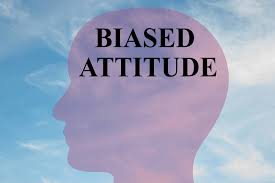“Could the current cohort of eminent women in their 60s herald an era when aging, for women, ceases to be an enemy, and even becomes a friend?” asks Liza Mundy in the recent issue of the Atlantic. (And could that magazine actually be taking a progressive position on aging?)
As she observes, it’s an intriguing idea and also a profoundly counterintuitive one, given the notorious dearth of women in the halls of power. Though she lays out clearly why having a vagina is a handicap, I wish she’d explained why wrinkles are not. But no, to Mundy, age remains a liability. It’s an advantage only in an ageist and sexist context: an attribute for women to deploy in order to make their late-life power more palatable to others. I should have known as much from the title, “Playing the Granny Card.”
Mundy focuses on Hillary Clinton, Janet Yellen and Elizabeth Warren, all overachievers who raised families and built impressive careers over many decades in public service. “In a fairer world, they might have peaked earlier,” she writes, setting out the obstacles that working women face. A steeper ladder to a glass ceiling: men tend to be promoted on the basis of perceived potential and women on the basis of performance, “a phenomenon that results in women getting to the top later, if they get there at all.” Putting husbands first. The wage gap, a measure of the cost of putting children first. Mothers of young children also face “a set of belittling stereotypes sometimes referred to as the ‘maternal wall.’” Another kind of gender bias also hampers workplace advancement. Moms are seen as warm but not competent, while less traditionally feminine women—such as lesbians, athletes, feminists and working women—are seen as competent but not warm. (Men don’t have to choose.)
Sexism, check; Mundy gets it. But when it comes to ageism—not to mention the noxious intersection between the two forms of prejudice—she has a long way to go. At least the word appears, in this sentence: “To be sure, female aging is not without liabilities: some research suggests that ageism may hit women especially hard, with women being perceived as old at a younger age than men are.”
May “hit women especially hard?” No feminist doubts the existence of what Susan Sontag in 1972 called “the double standard of aging.” And “perceived as old?” Reinforcing the notion that appearance is paramount, this ageist phrase gives all the power to the perceiver and equates aging with the loss of social capital. By using it, unexamined, Mundy colludes in that loss of capital. And as is so often the case, “old” serves as a placeholder for a suite of undesirable characteristics that have nothing to do with chronological age. Let’s guess: undesirable, incompetent, passive.
The good news, according to Mundy? We might have a fix for that pesky warmth/competence double bind, epitomized by Clinton’s famous “likability” deficit. Apparently people may feel more comfortable with, and less hostile towards, ambitious women when they get older. Why? Because in an ageist world, age marginalizes, and this makes powerful women less threatening. Being a grandmother boosts “likability” too, because grandmothers are seen as sweet and docile. When women embody ageist stereotypes, positioning themselves as grannies or “little old ladies” or “sexless seniors” in order to move up in the world, this behavior doesn’t compensate for sexism. It compounds sexism by offering another work-around for assertive women to come across as though they’re not.
Mundy writes, “Clinton’s feminism and ambition have contributed to her image problems. Might she now be in a window—call it early elderliness—when she can get credit for warmth without losing her reputation for competence?” Early elderliness, really? Now there’s a winning campaign slogan. How about “prime potential?” The elder-blogging universe brims with testimonials to the energy, confidence, experience, emotional maturity and self-awareness of older women, free at last to be their full, powerful selves. Examples in the flesh abound as well. Missing from Mundy’s position, these attributes are the true advantage that time imparts to postmenopausal women. They are ideal candidates for leadership.



